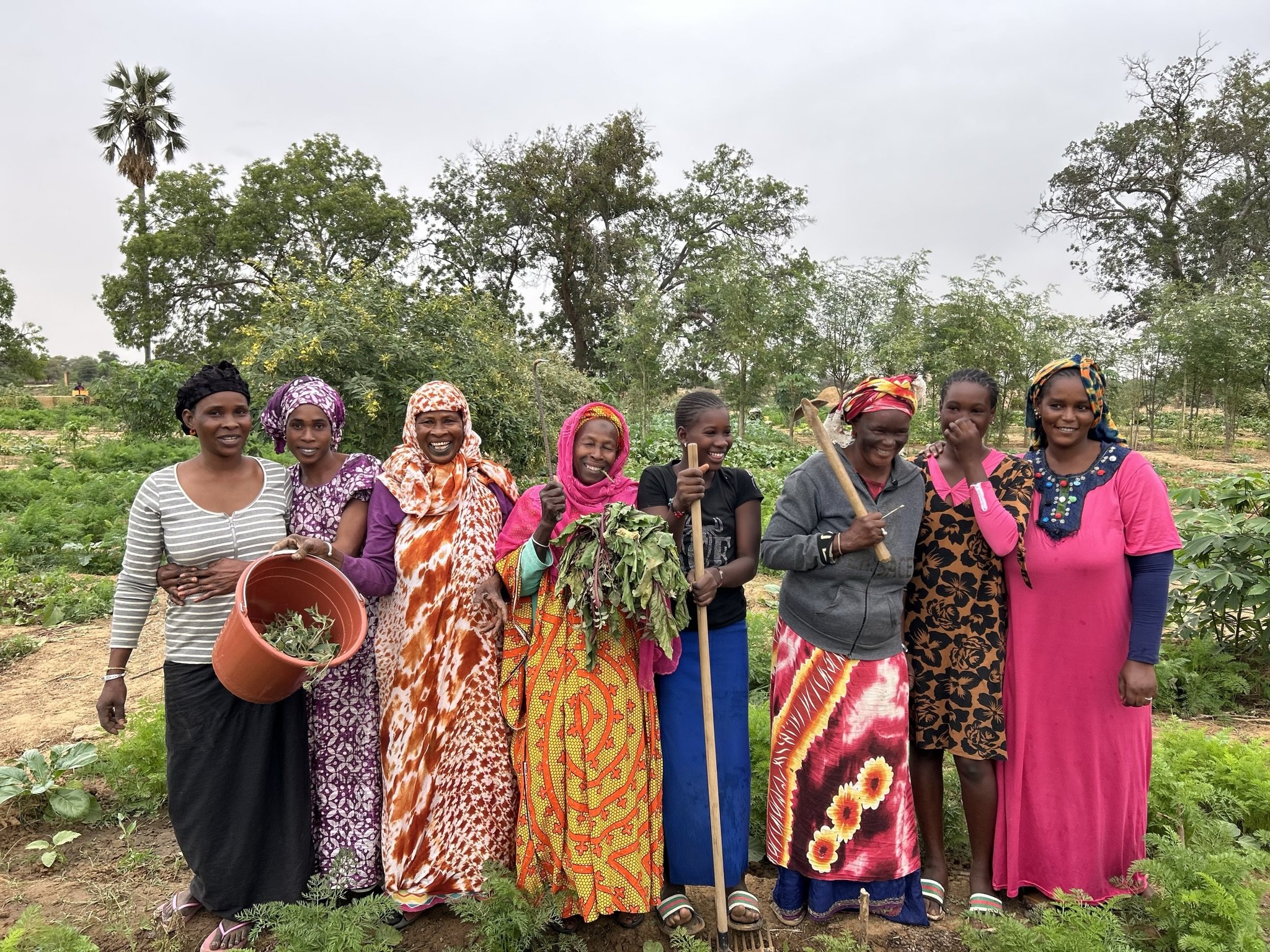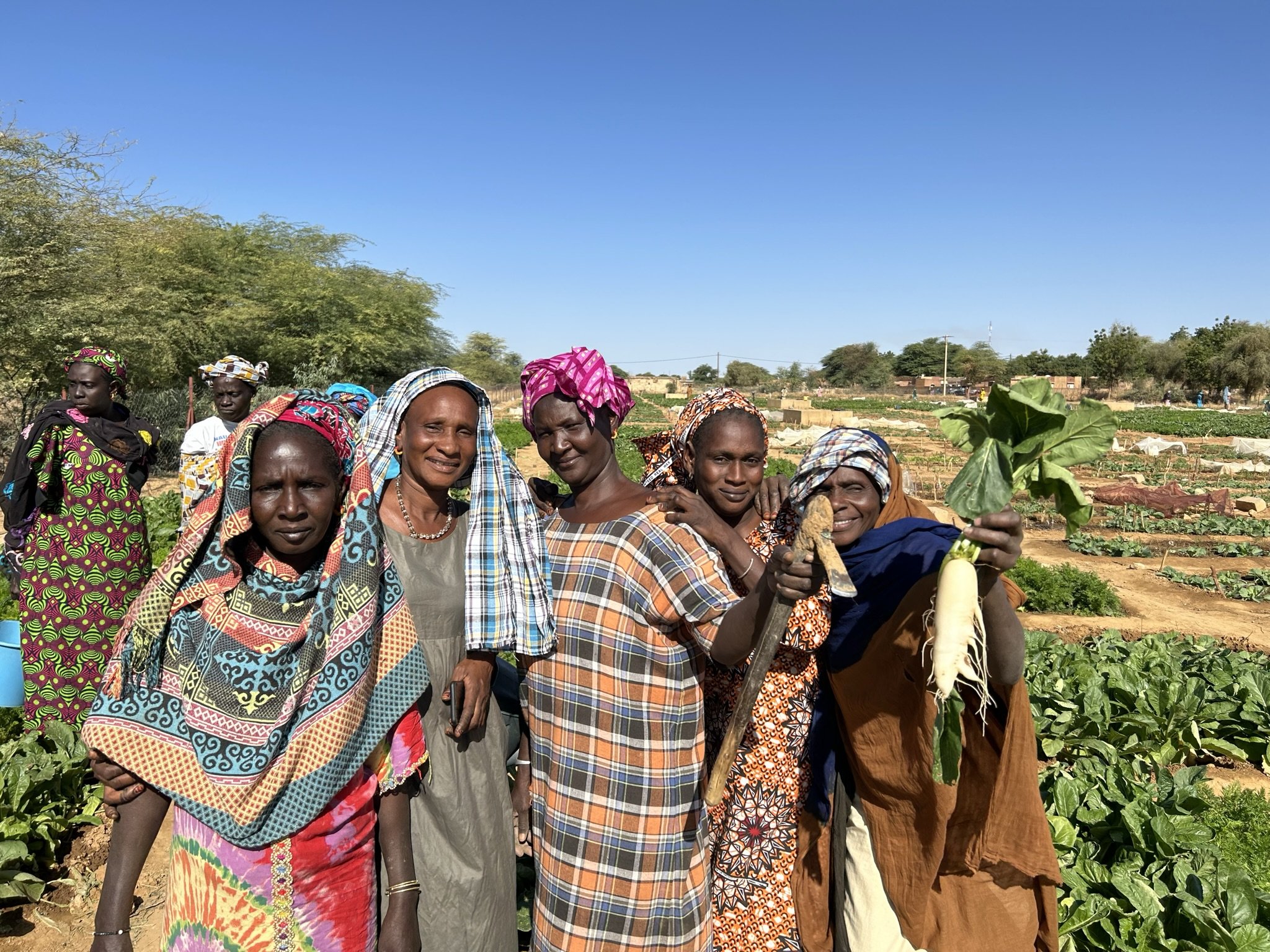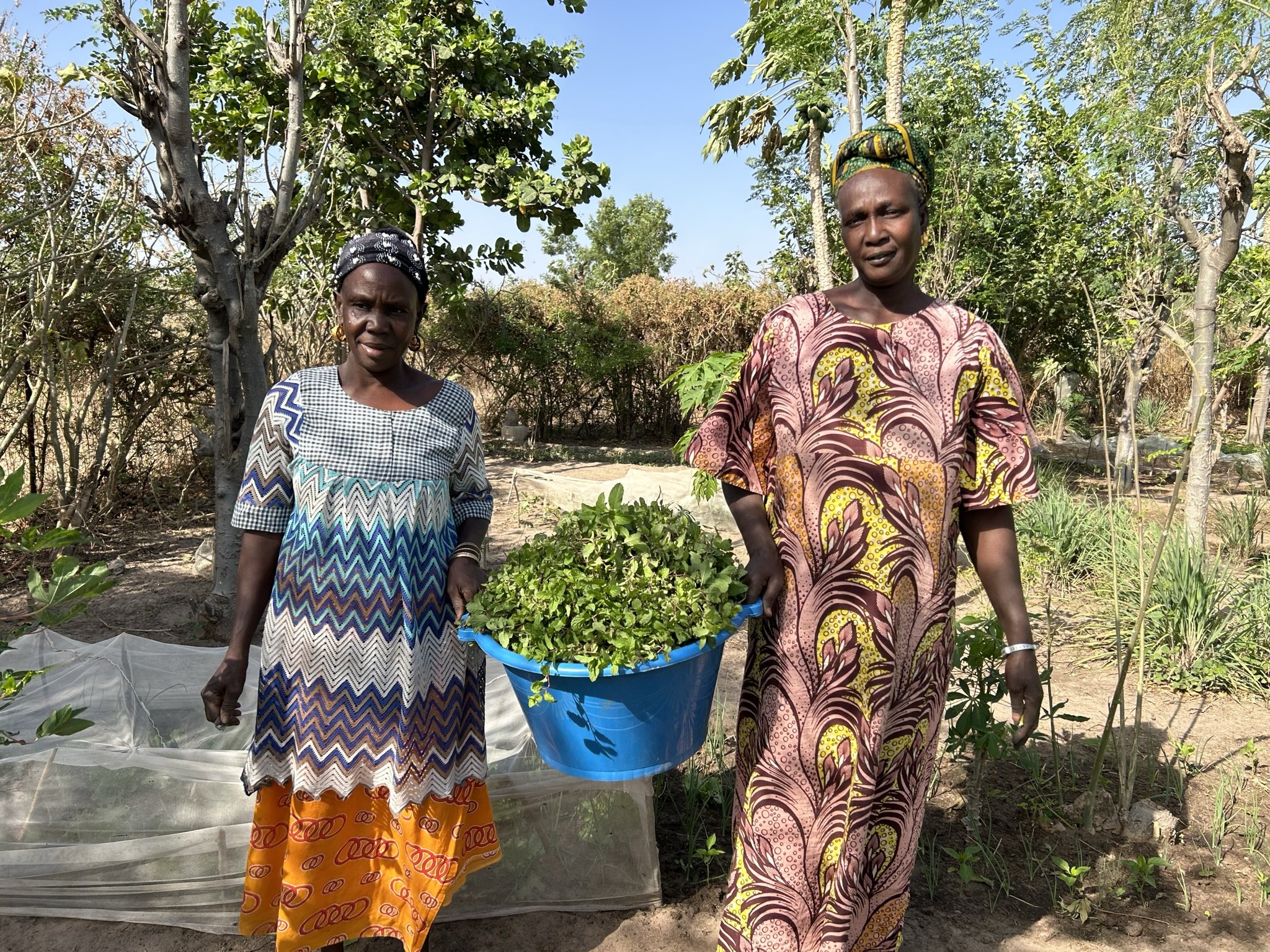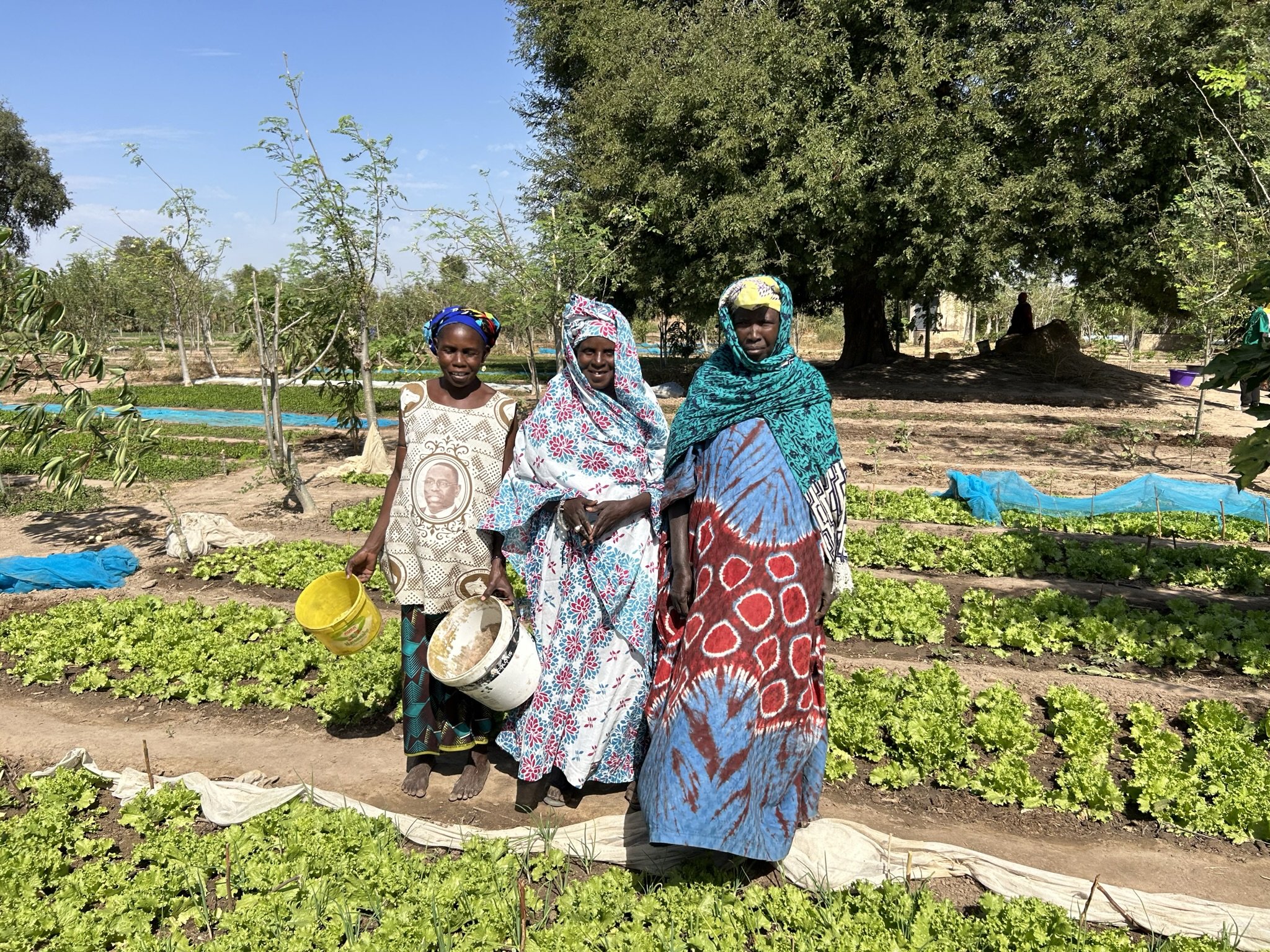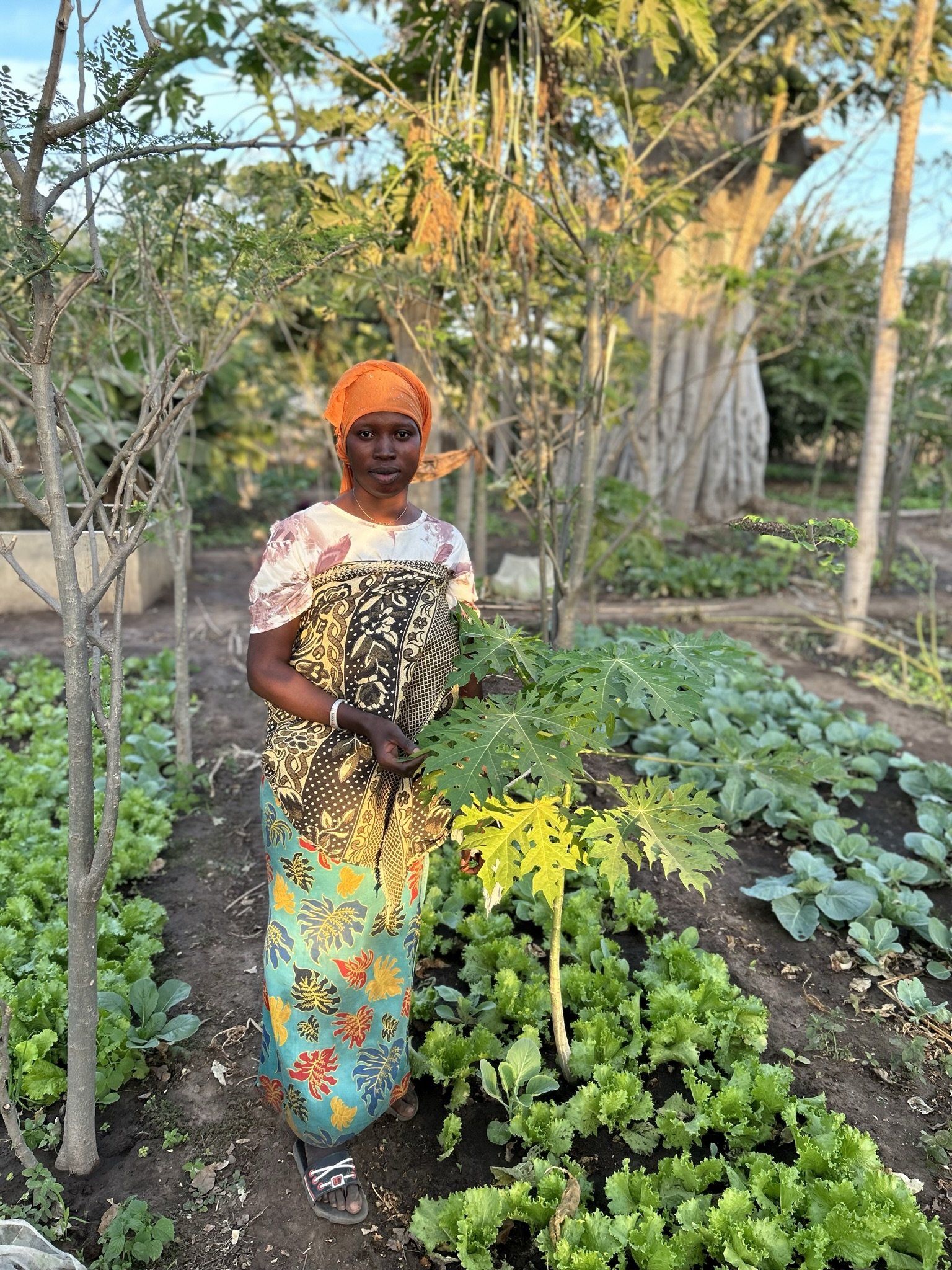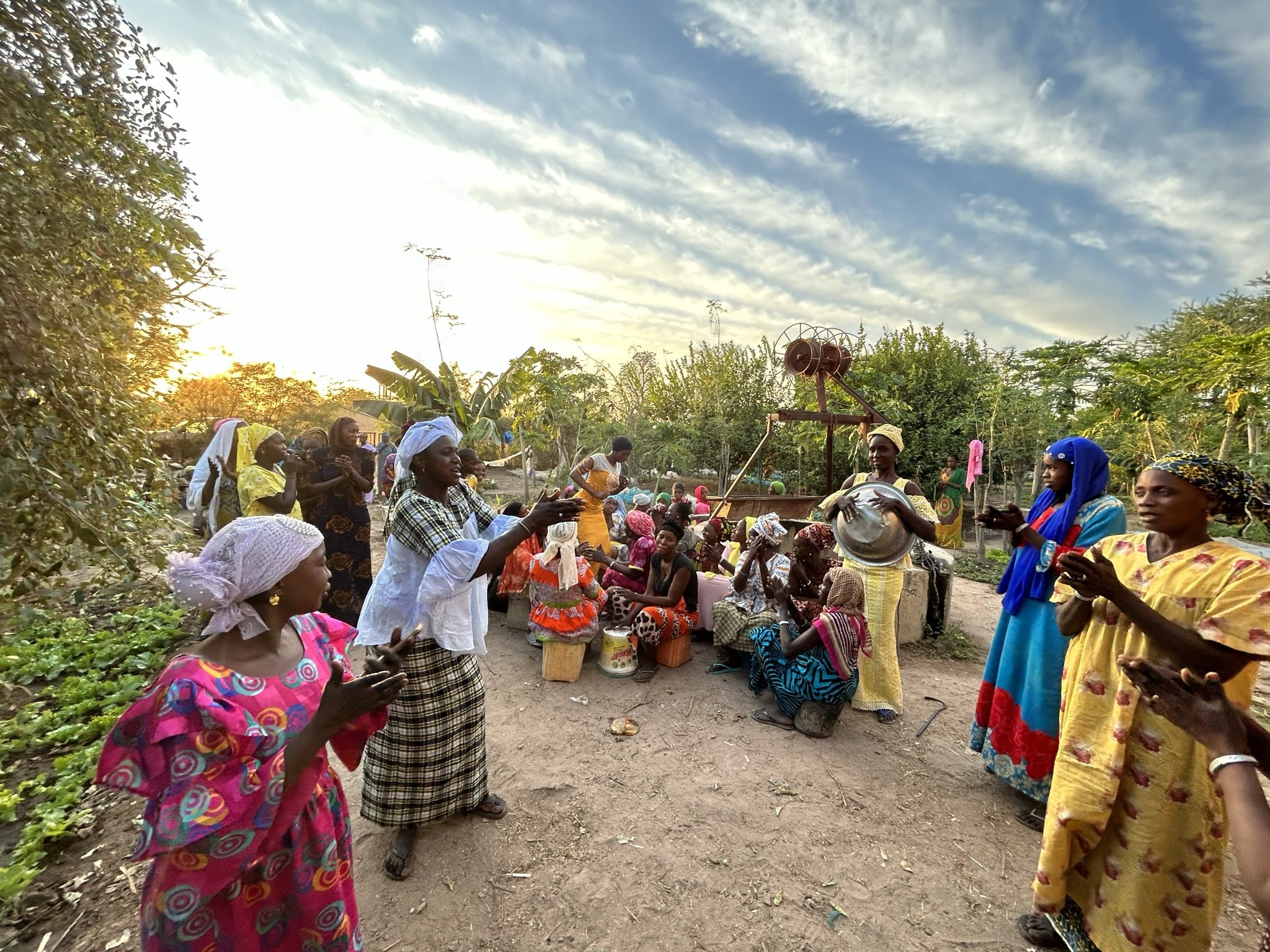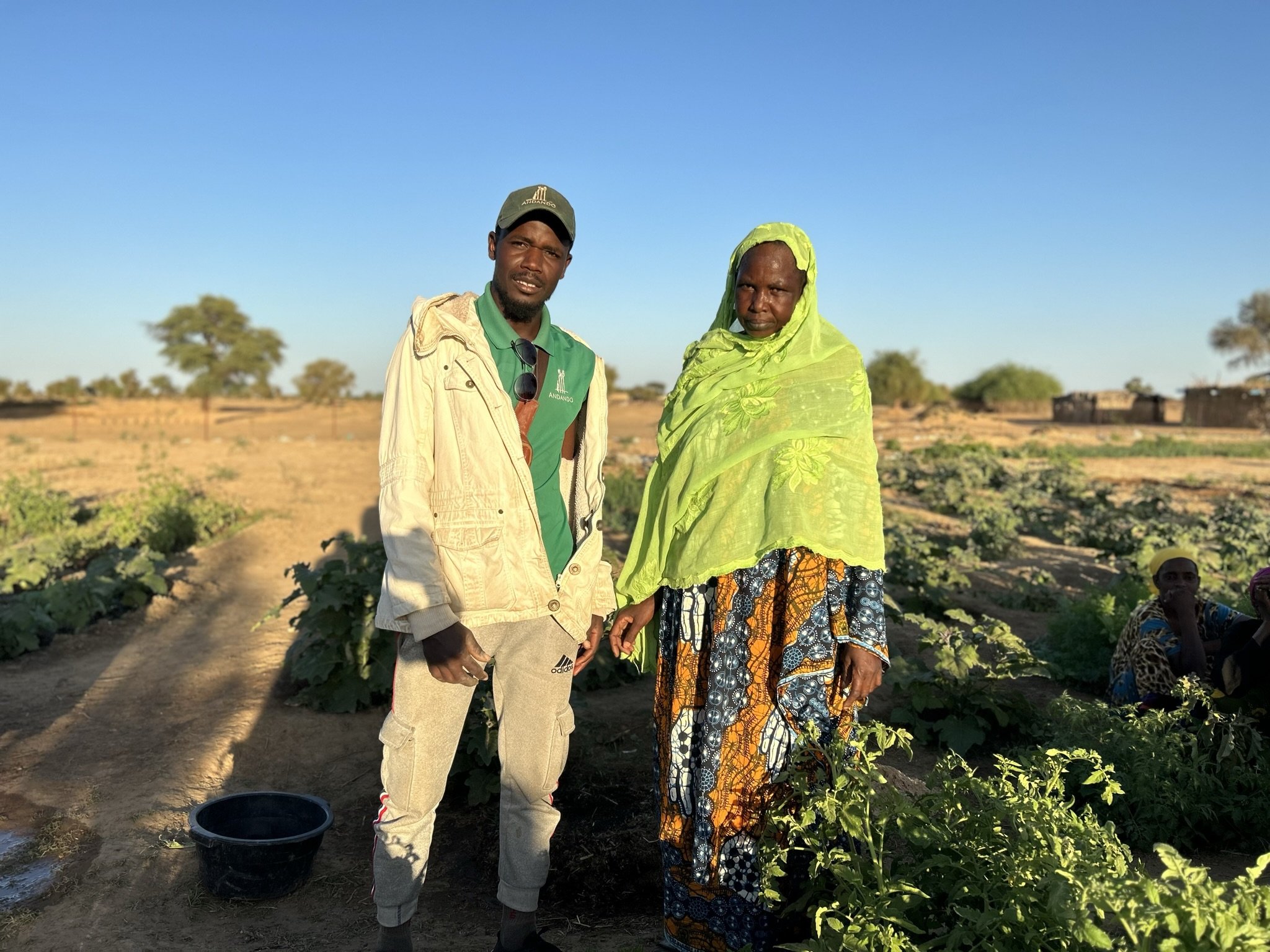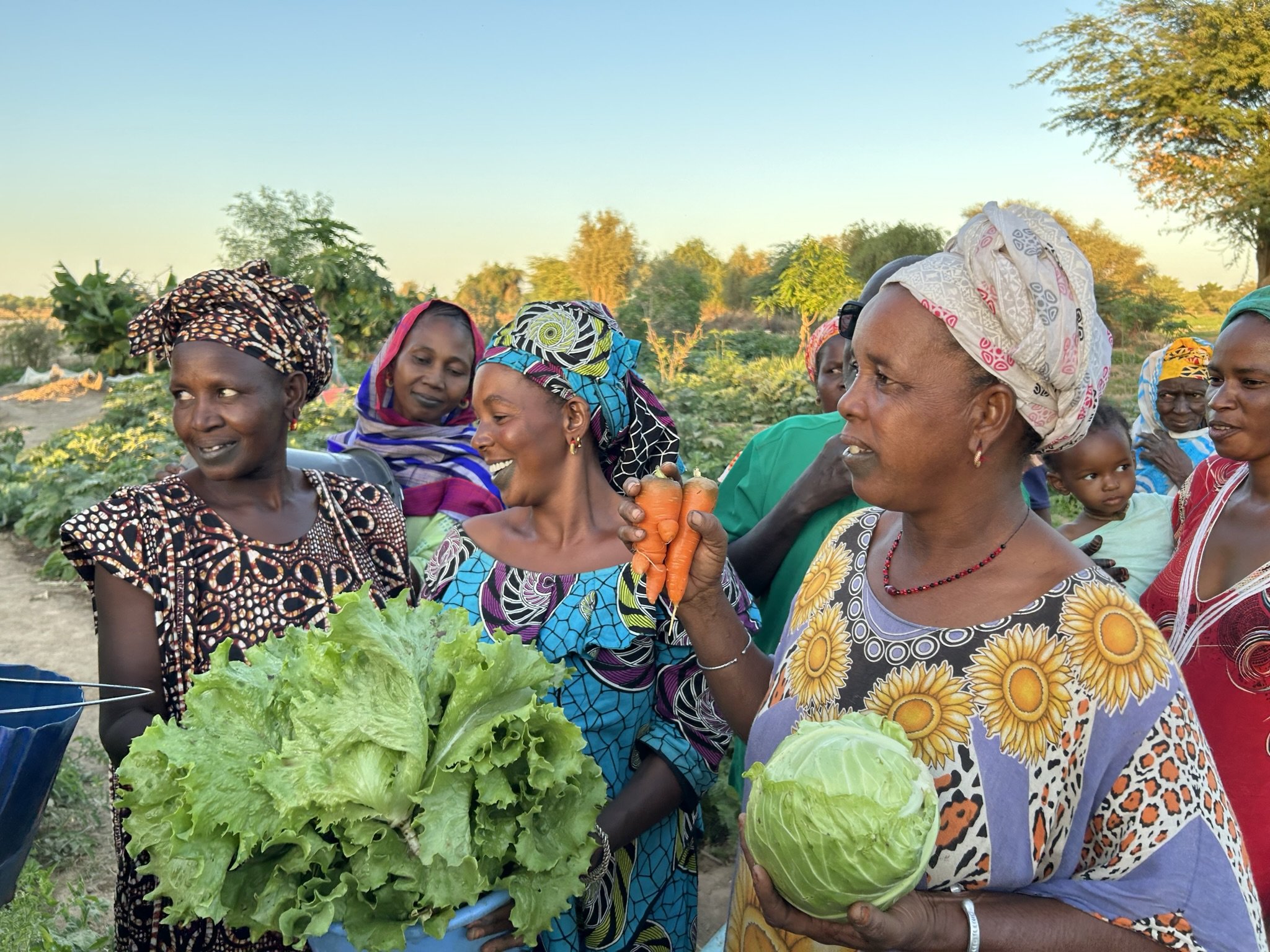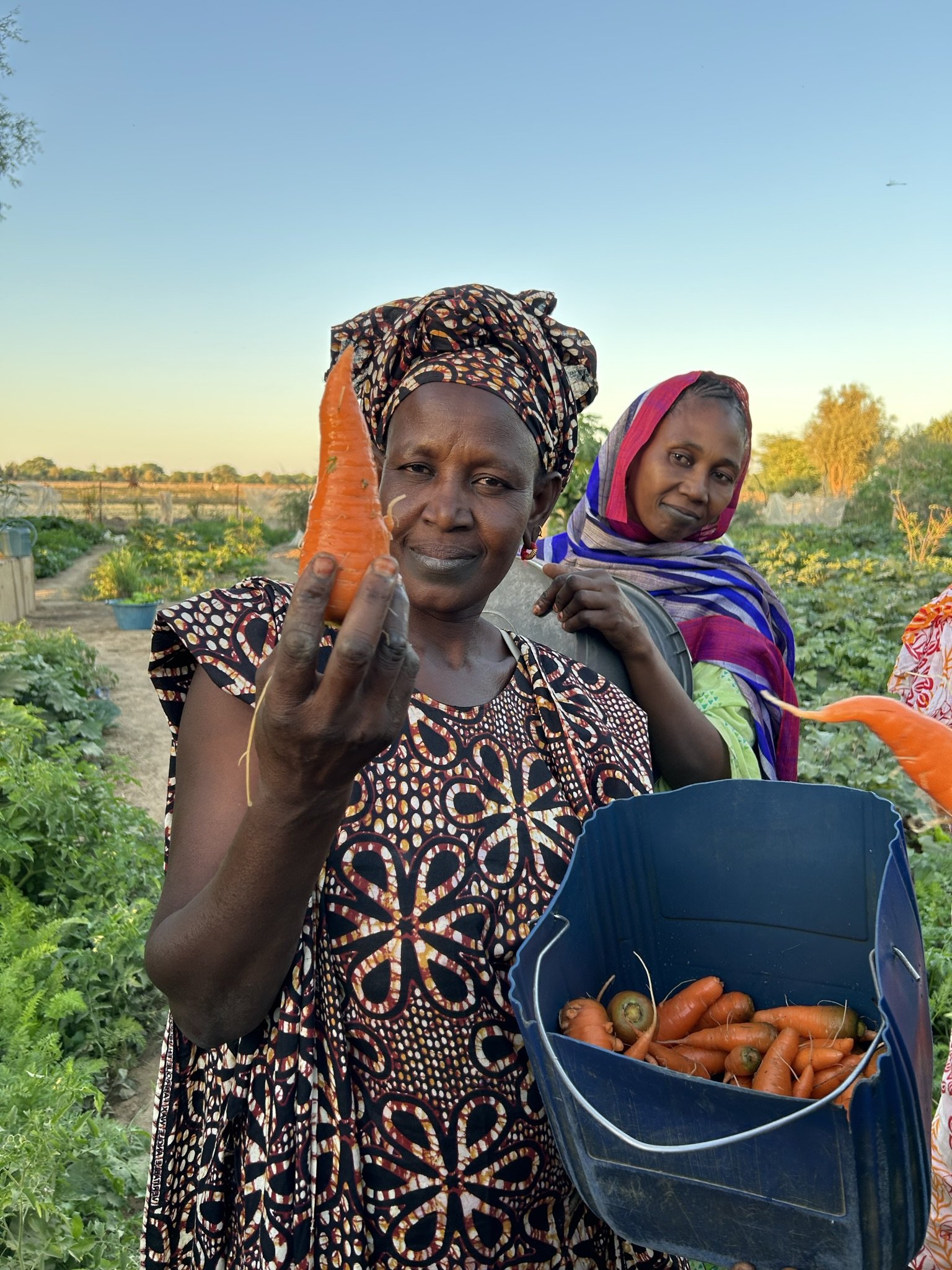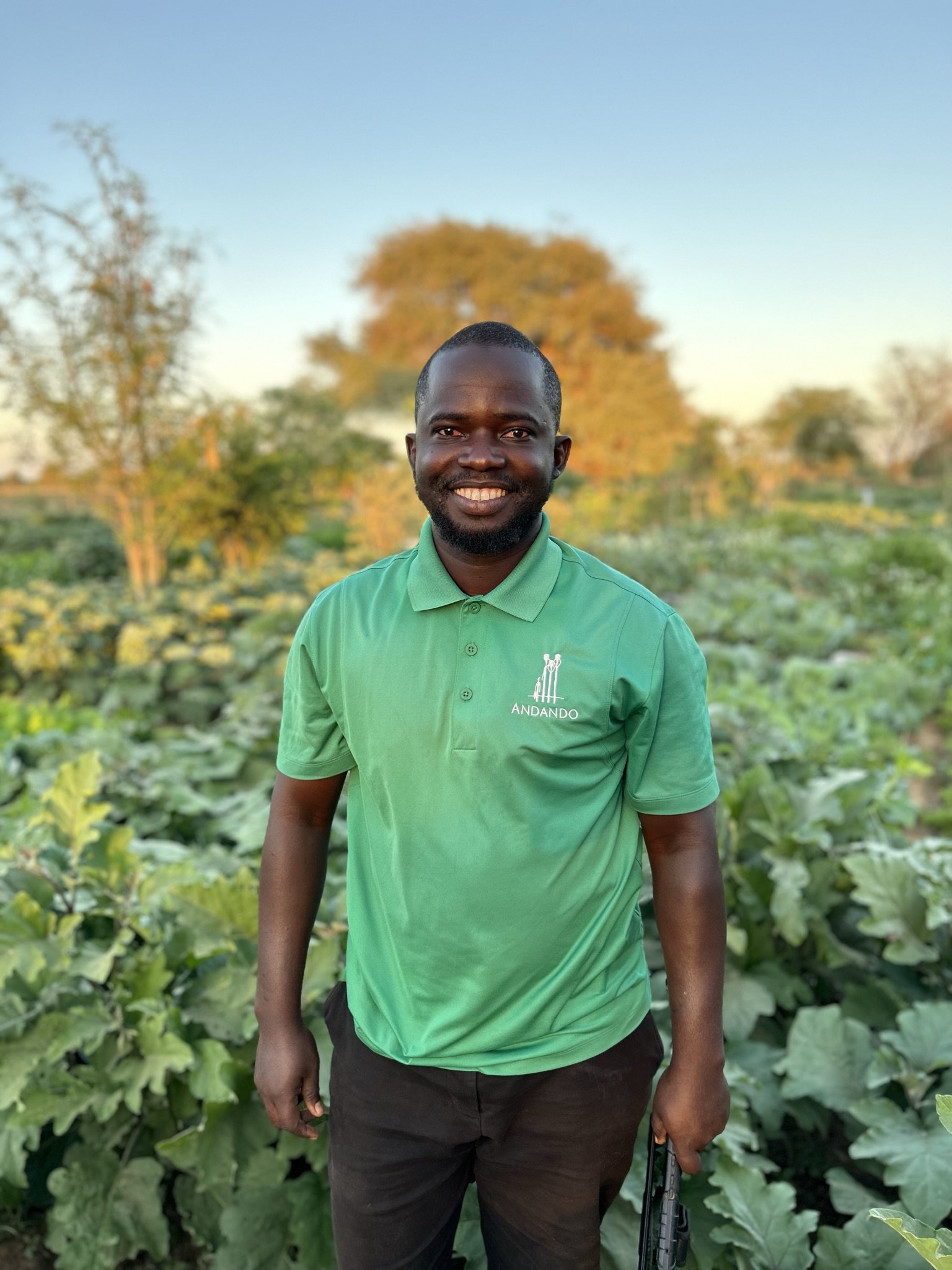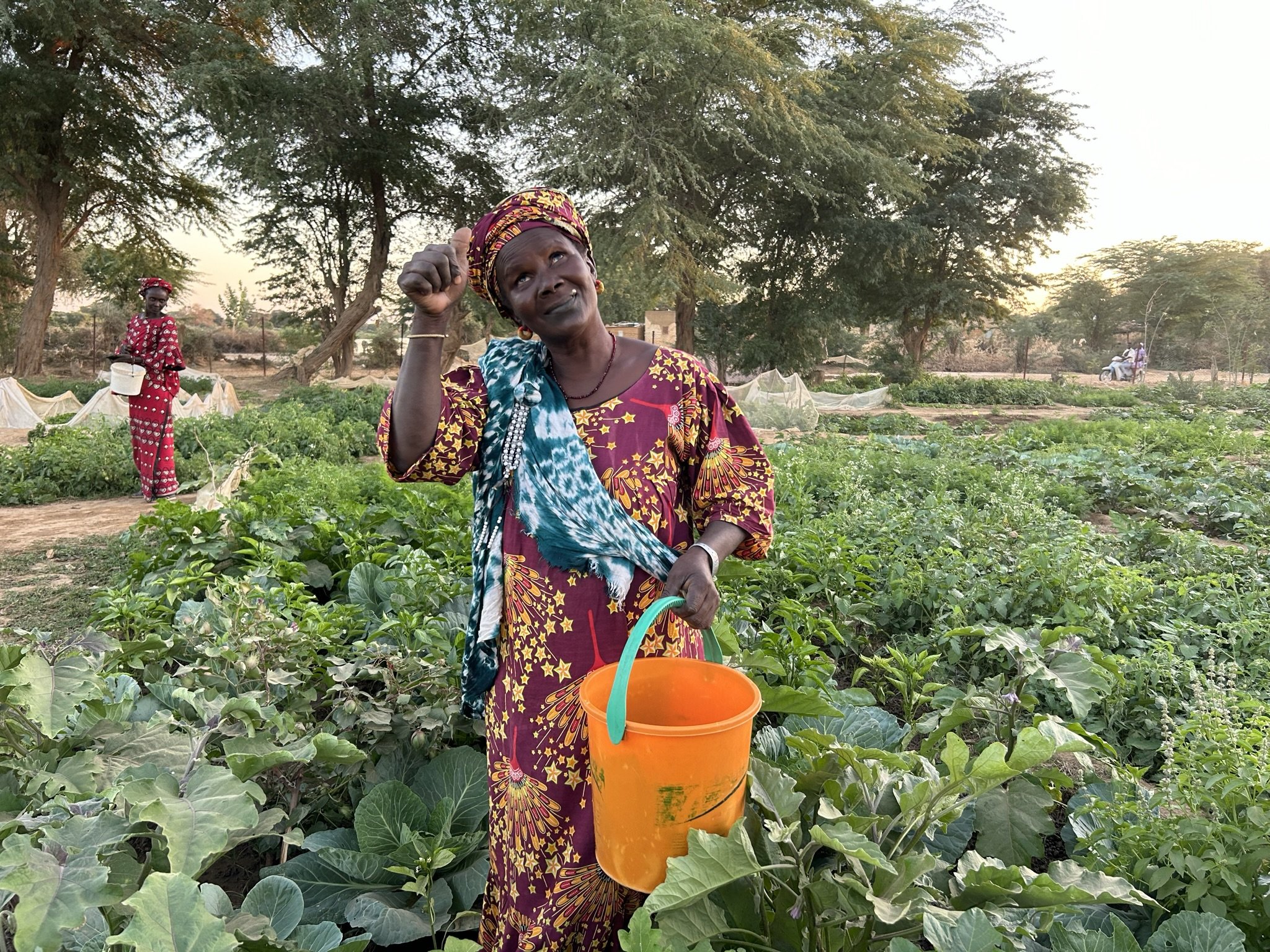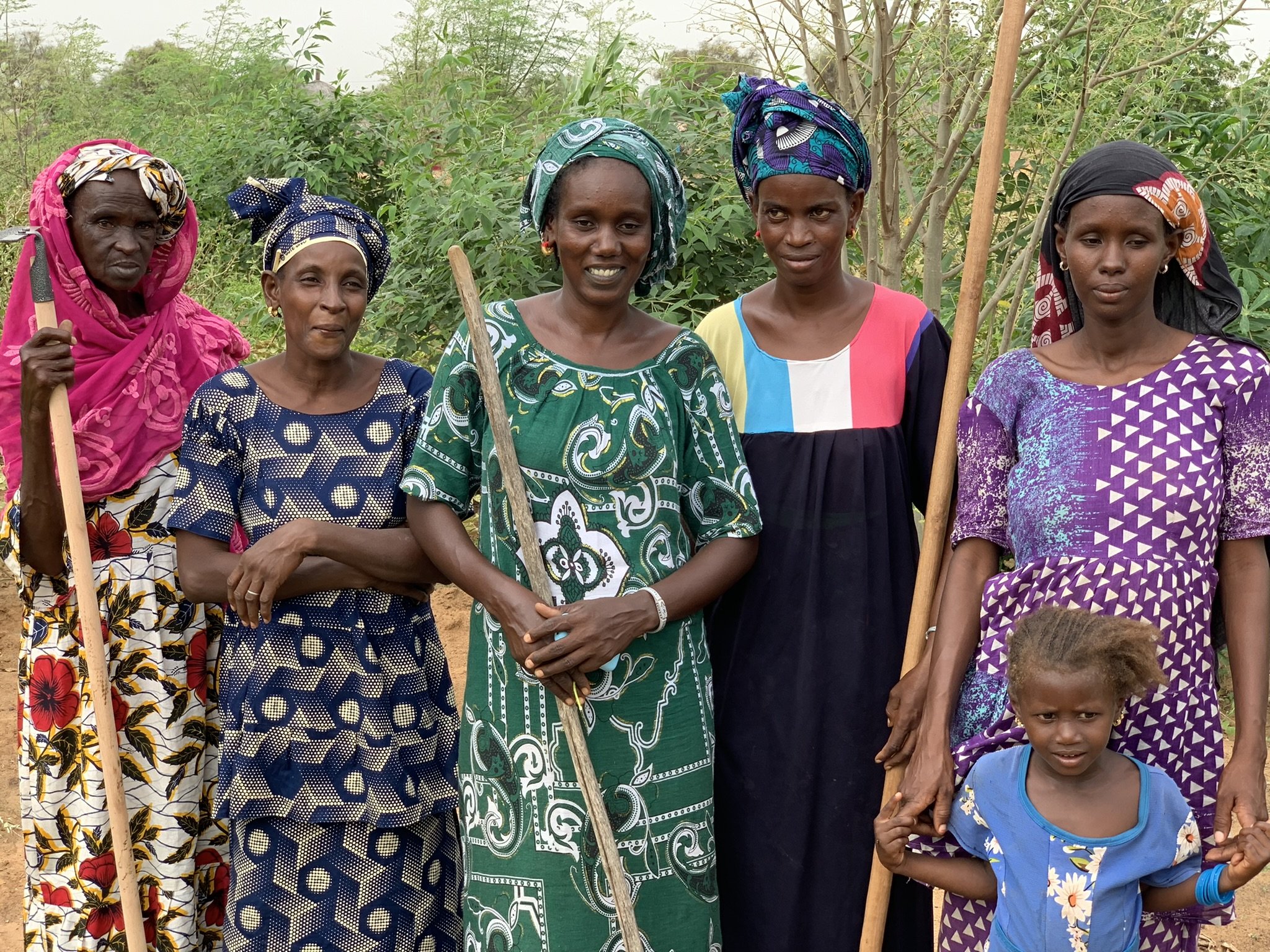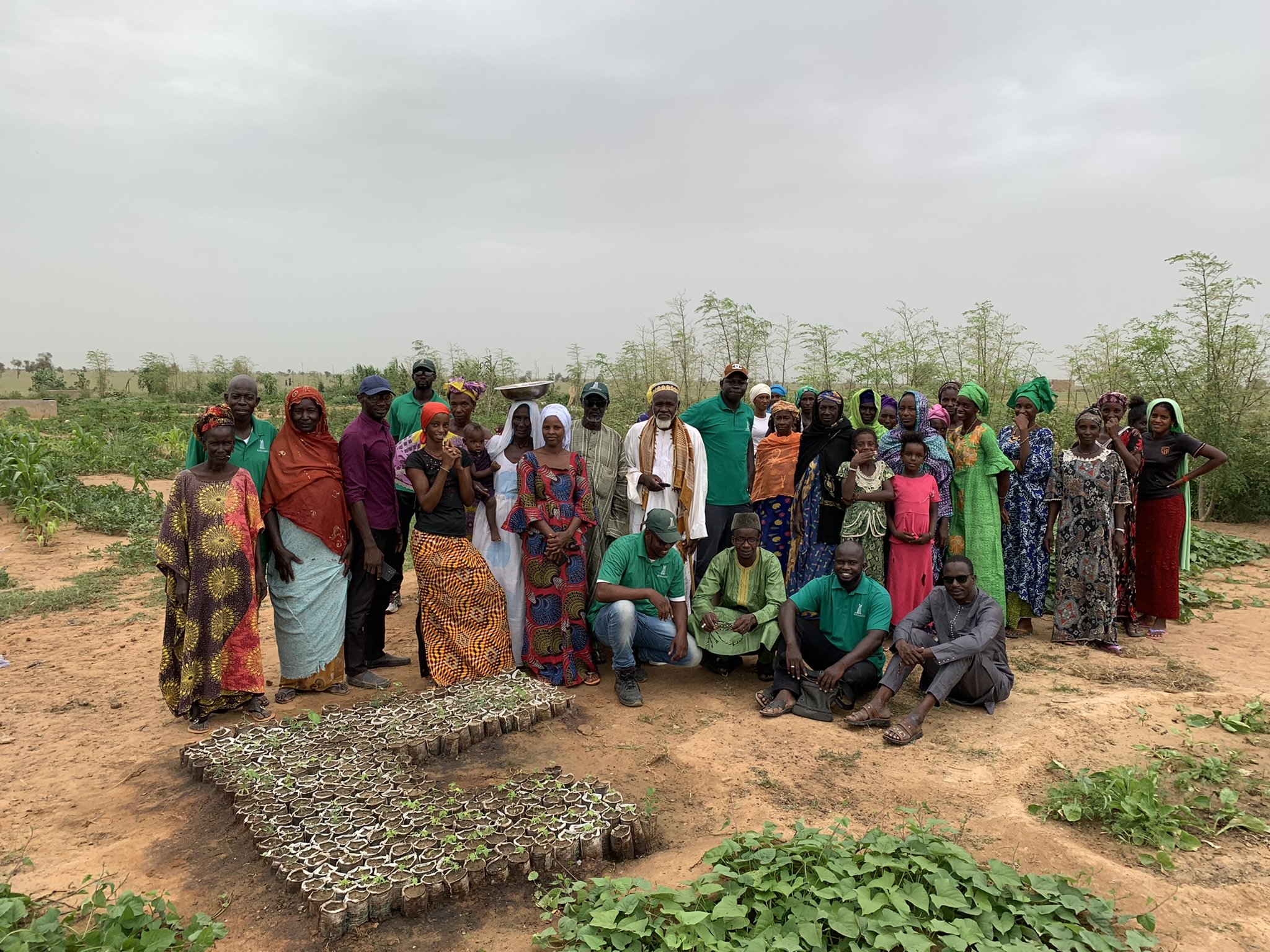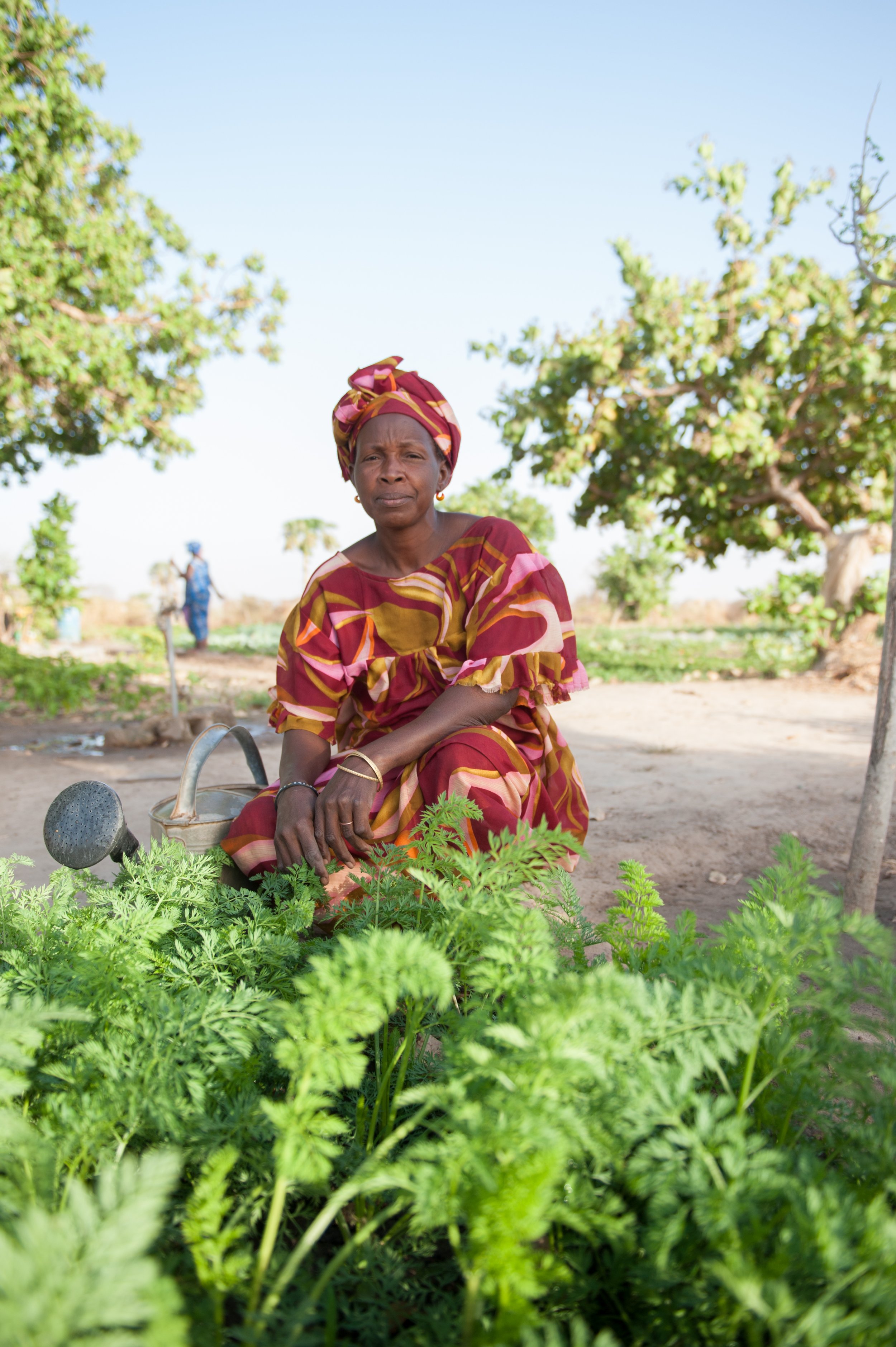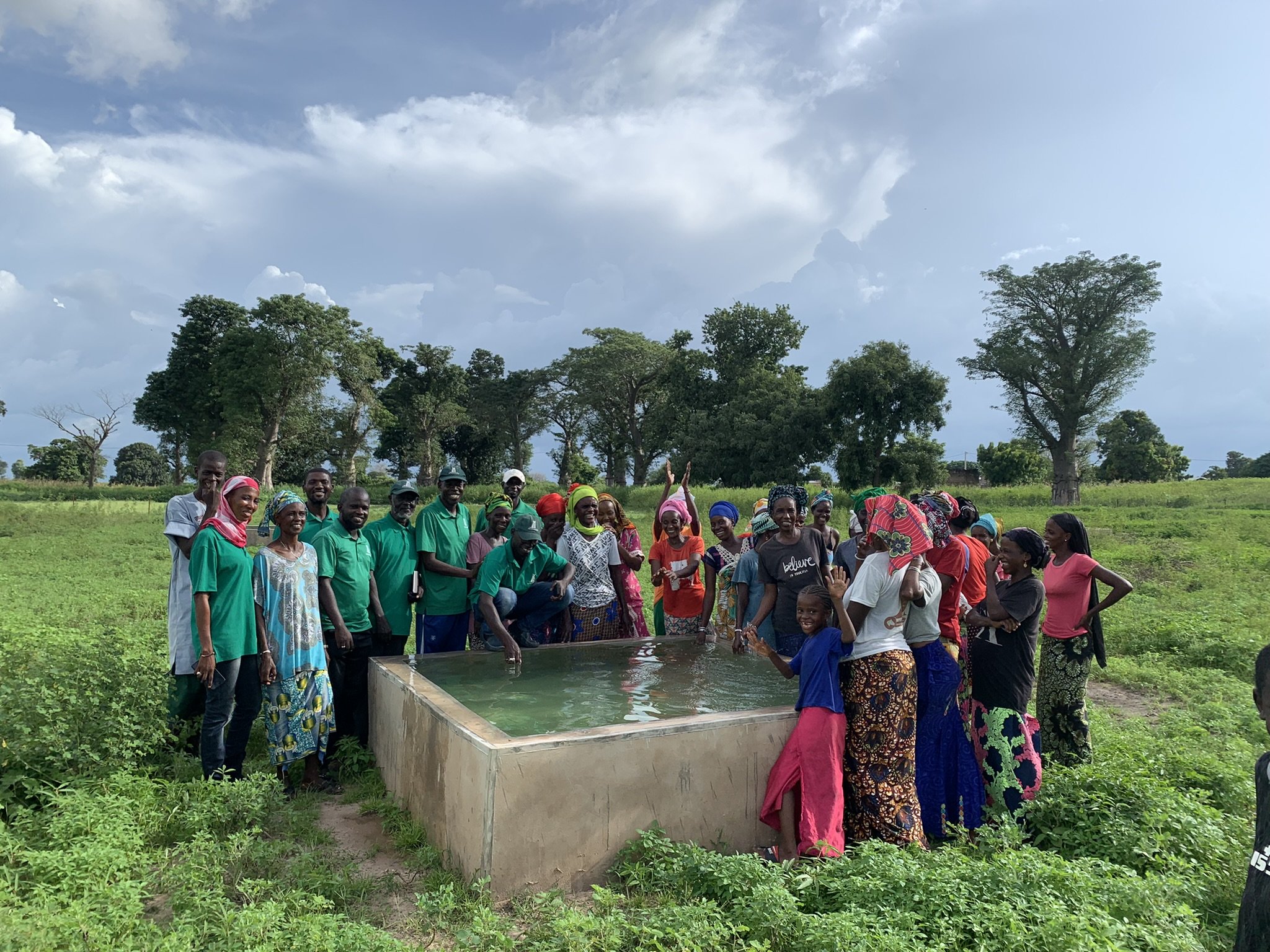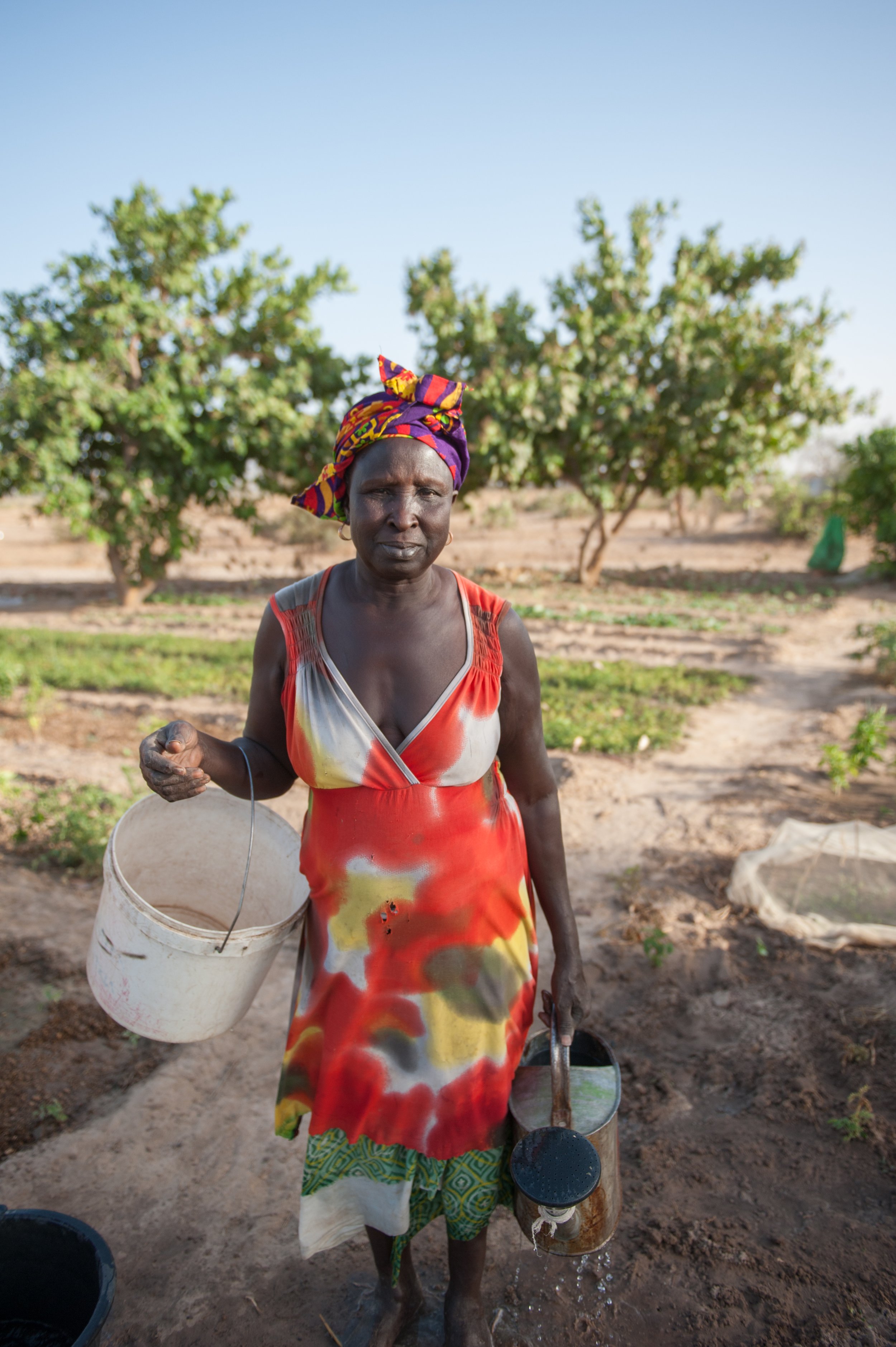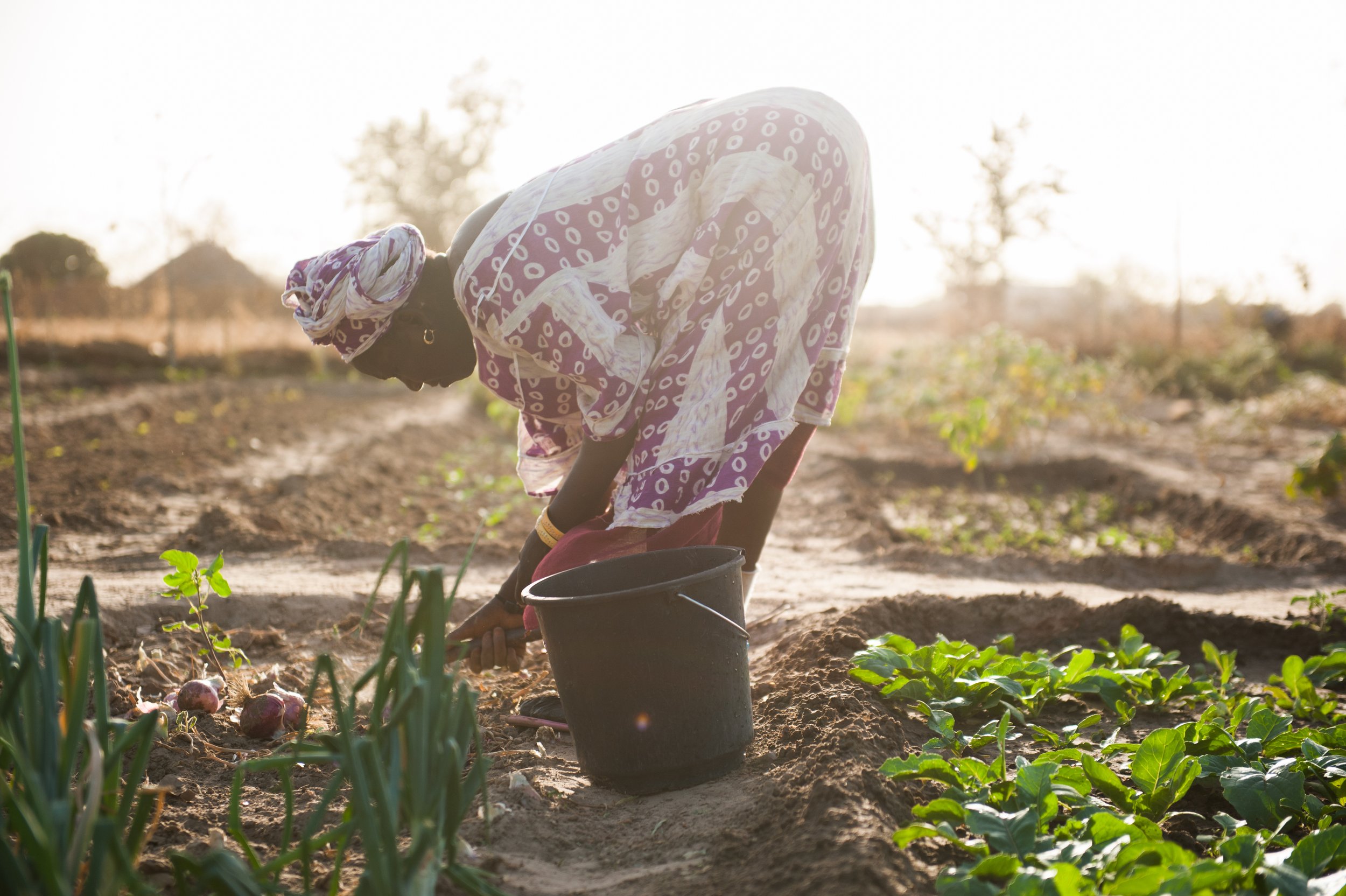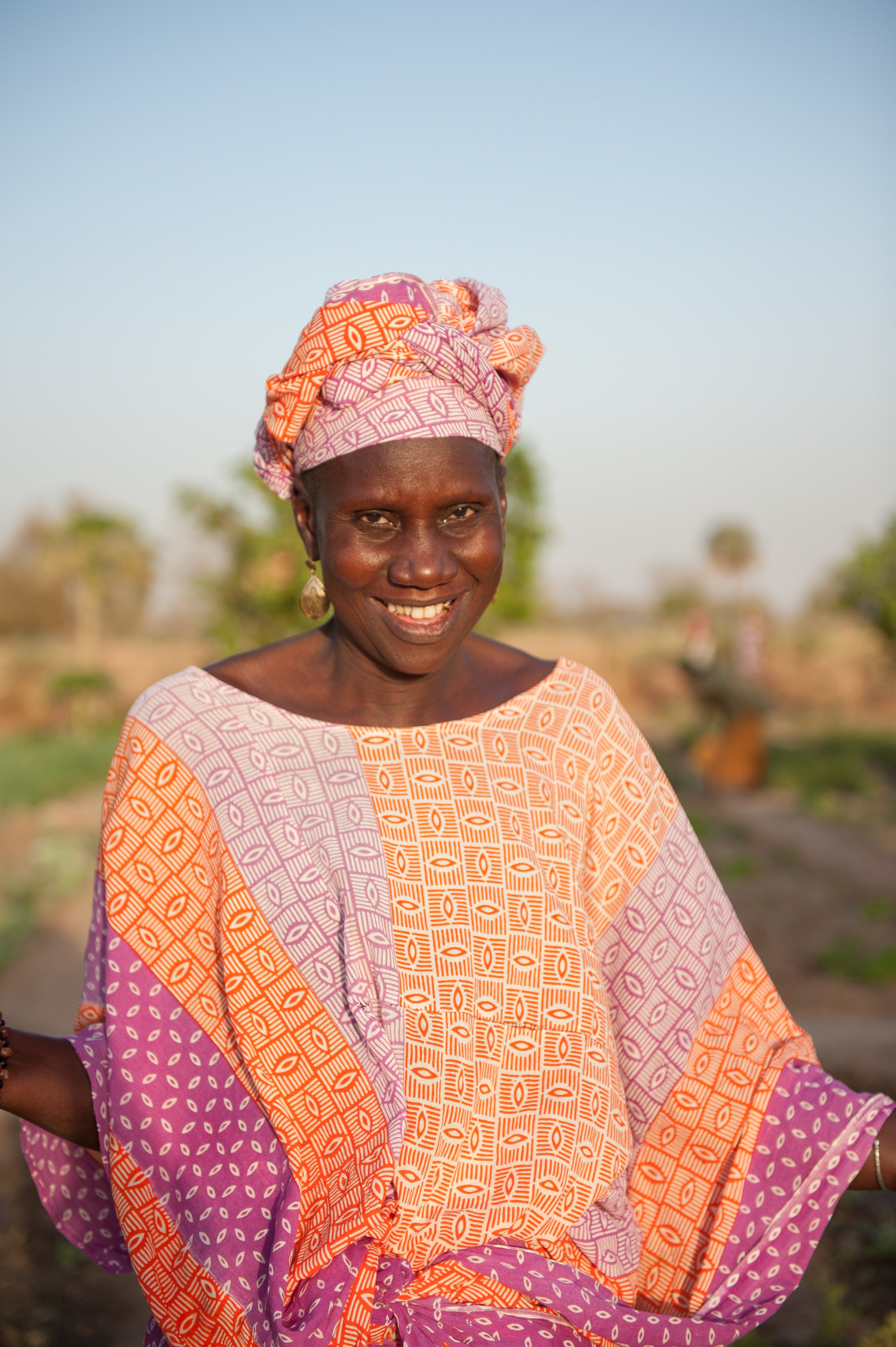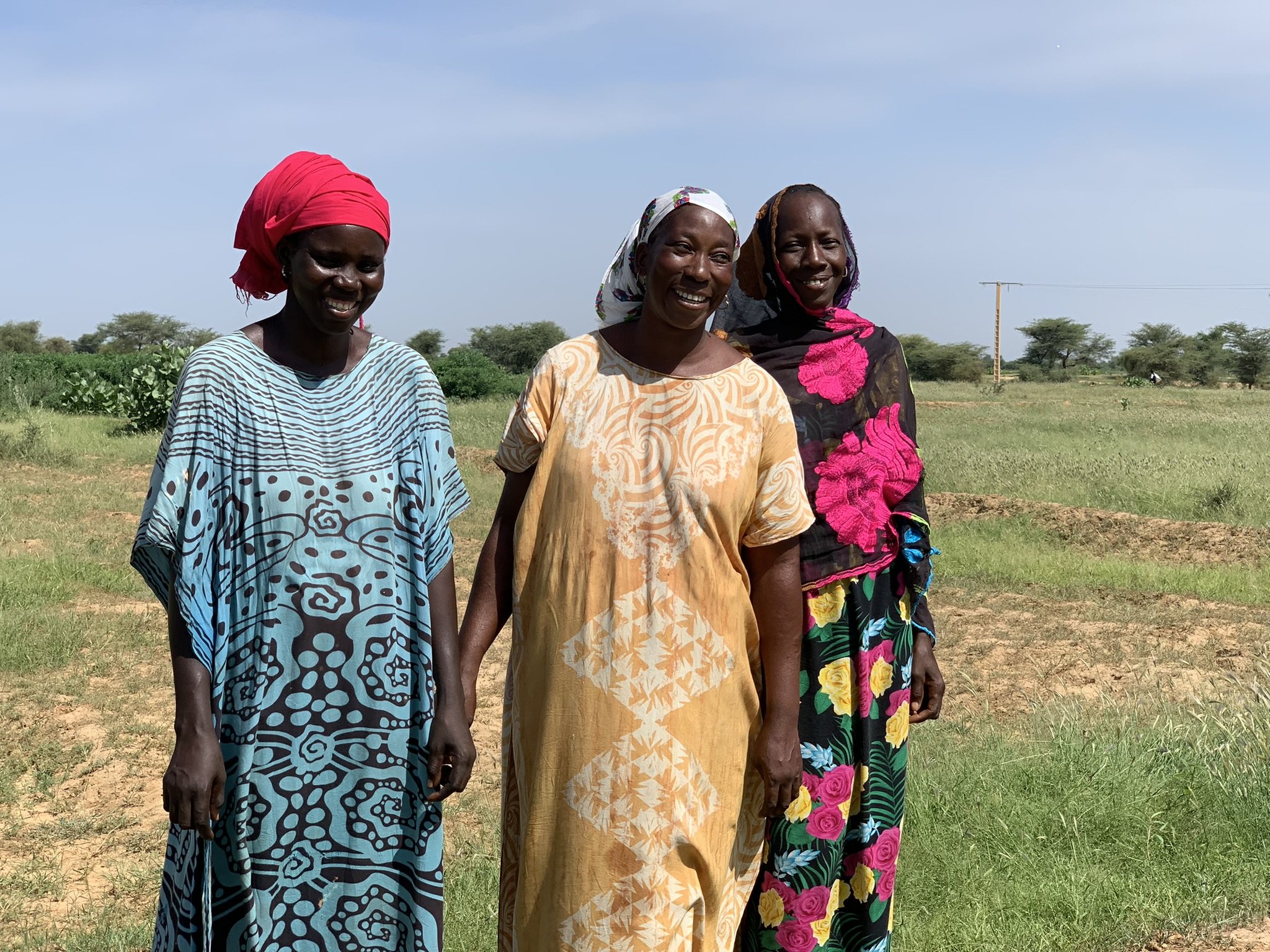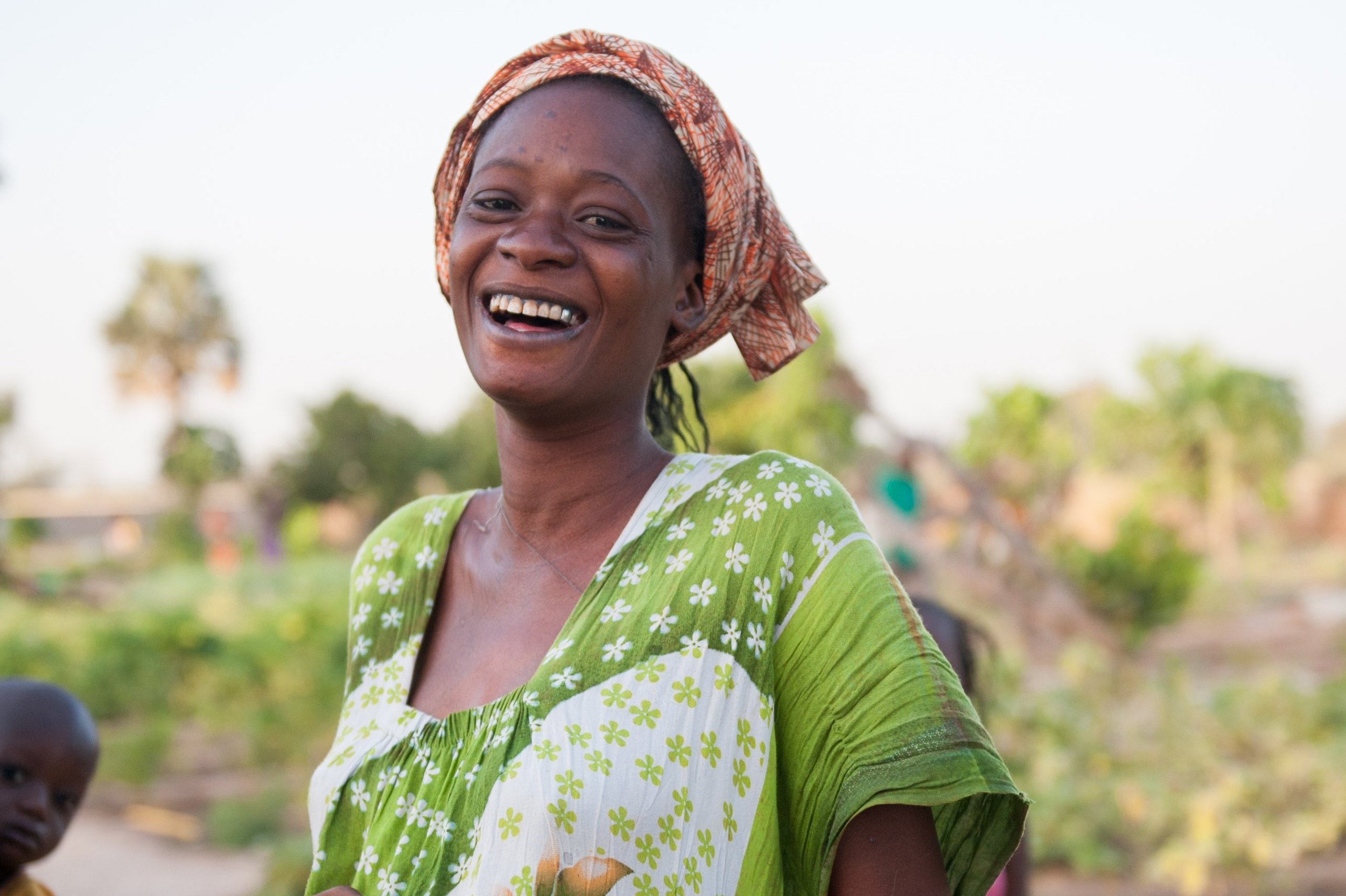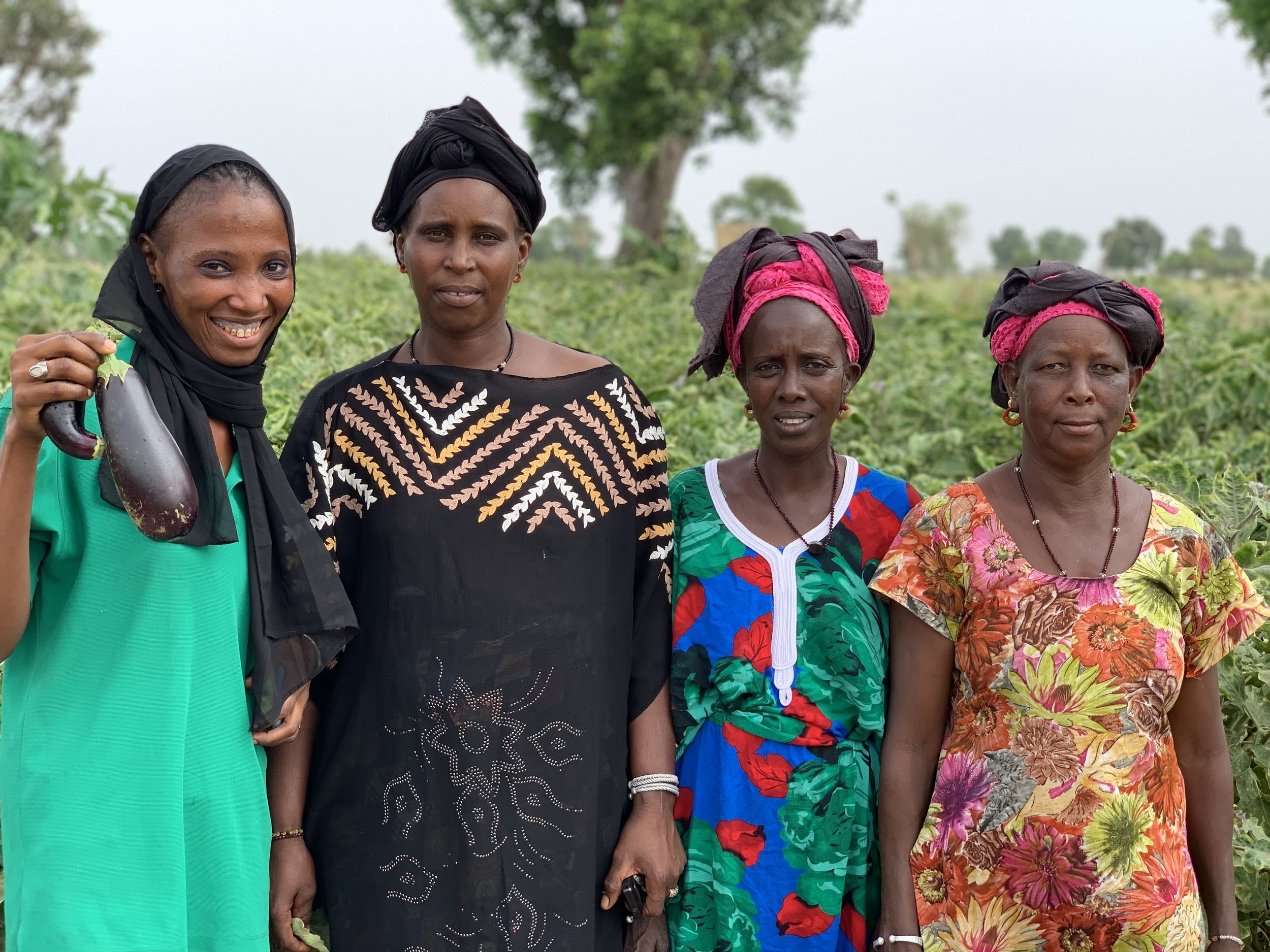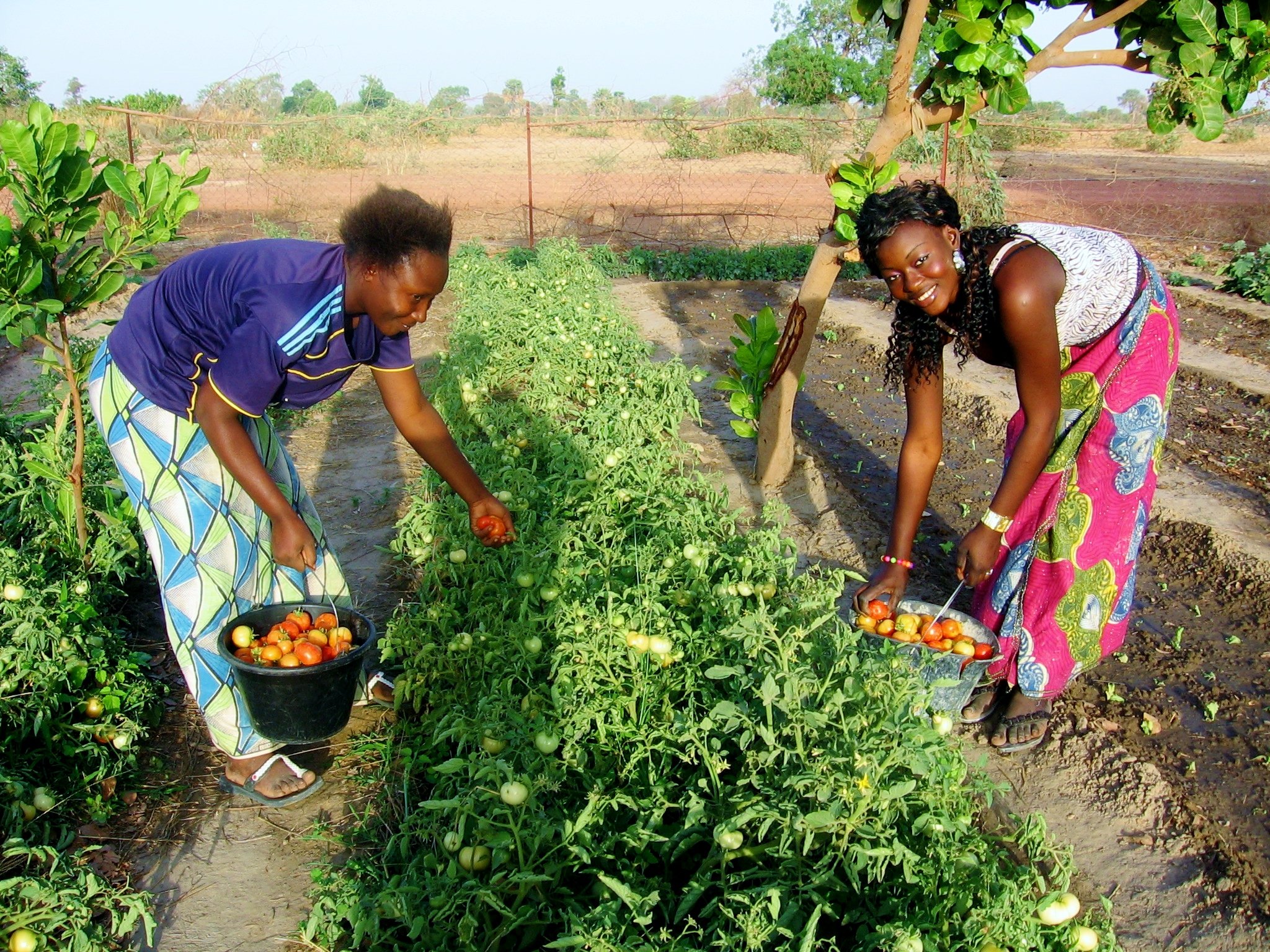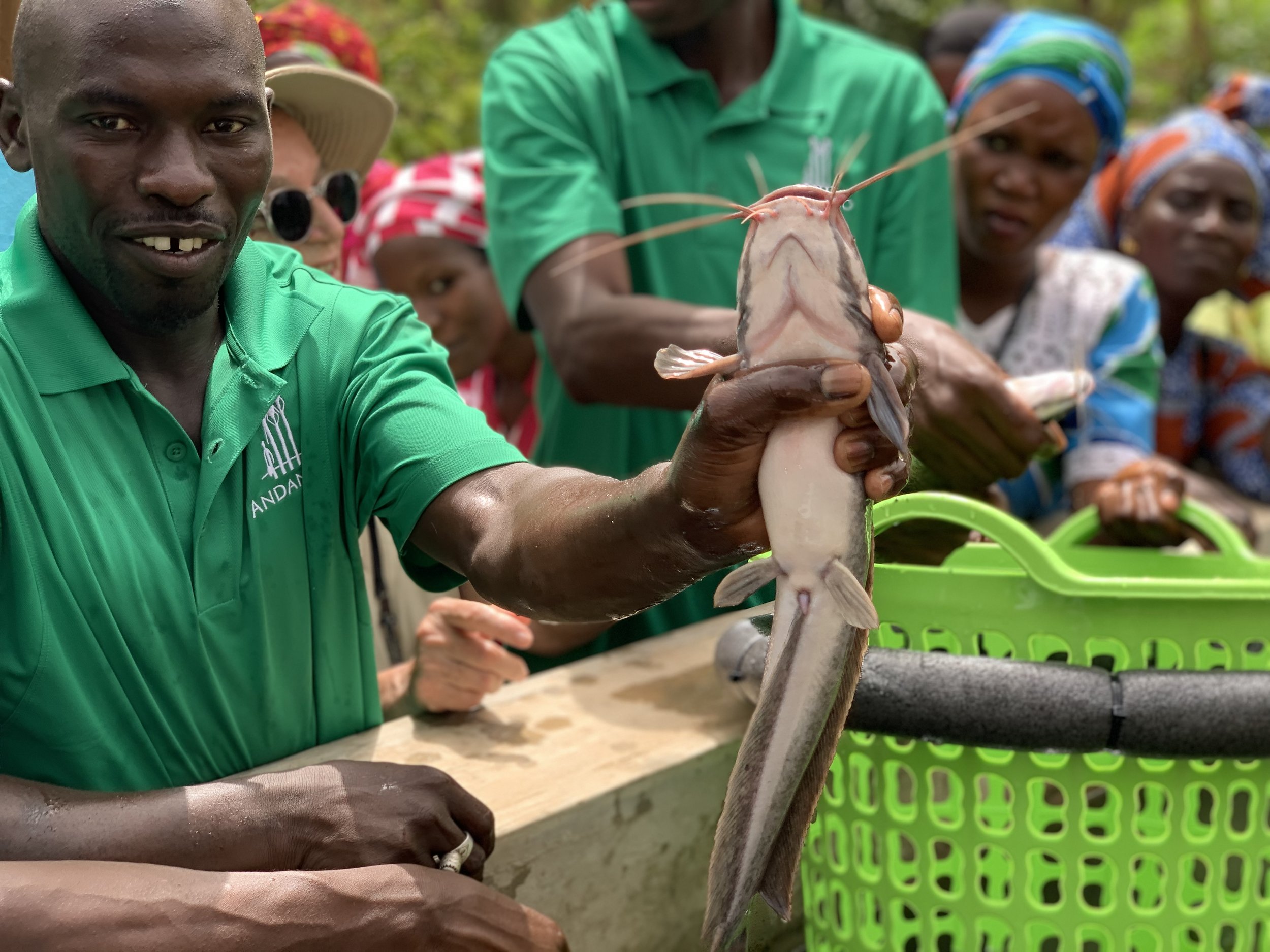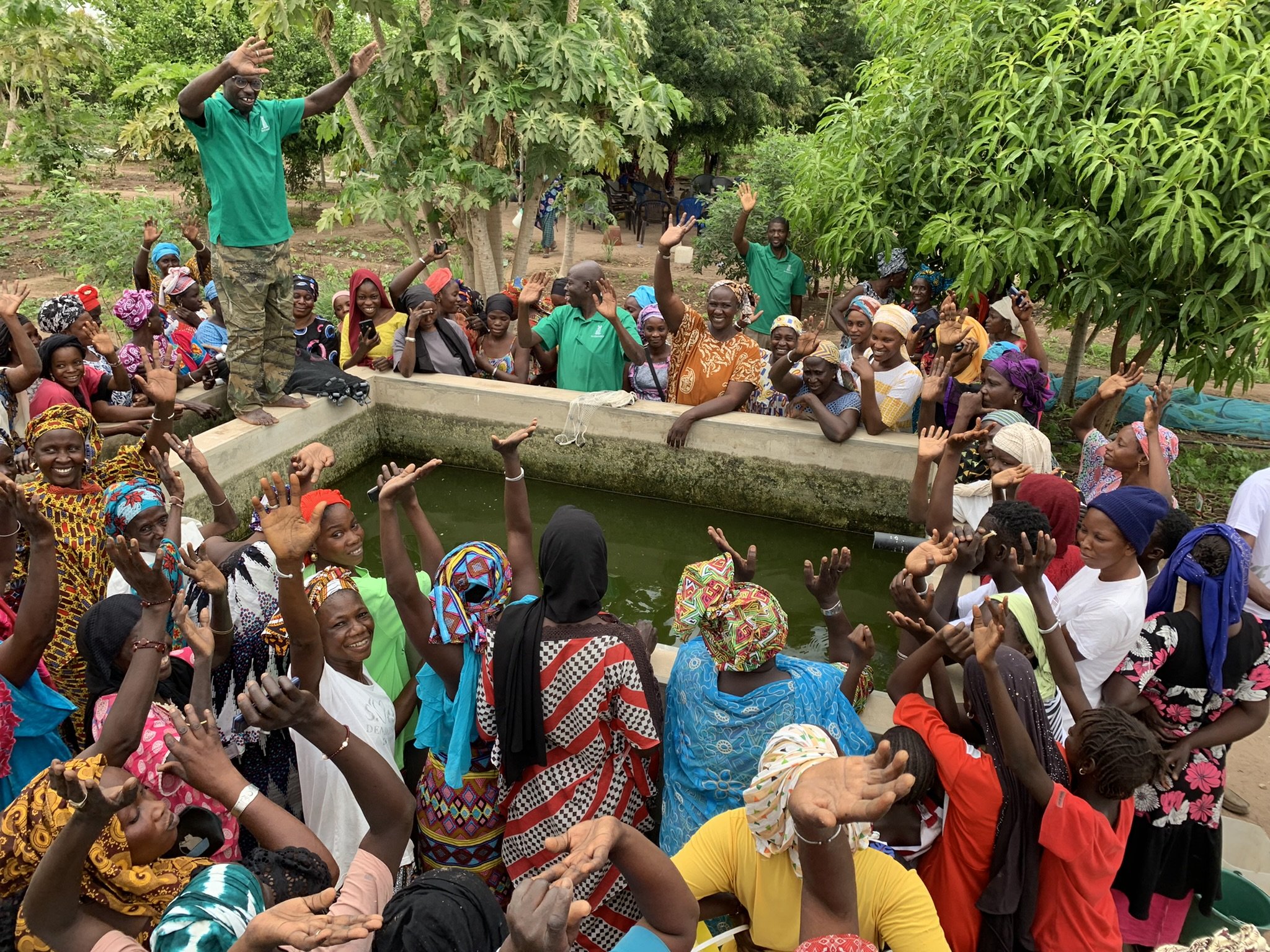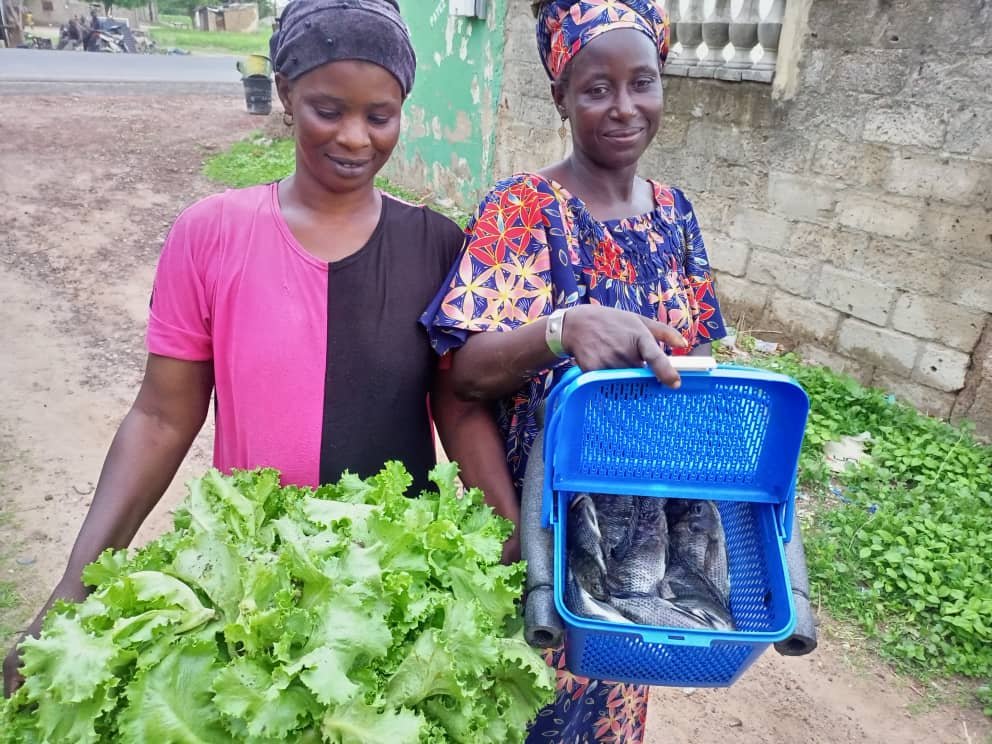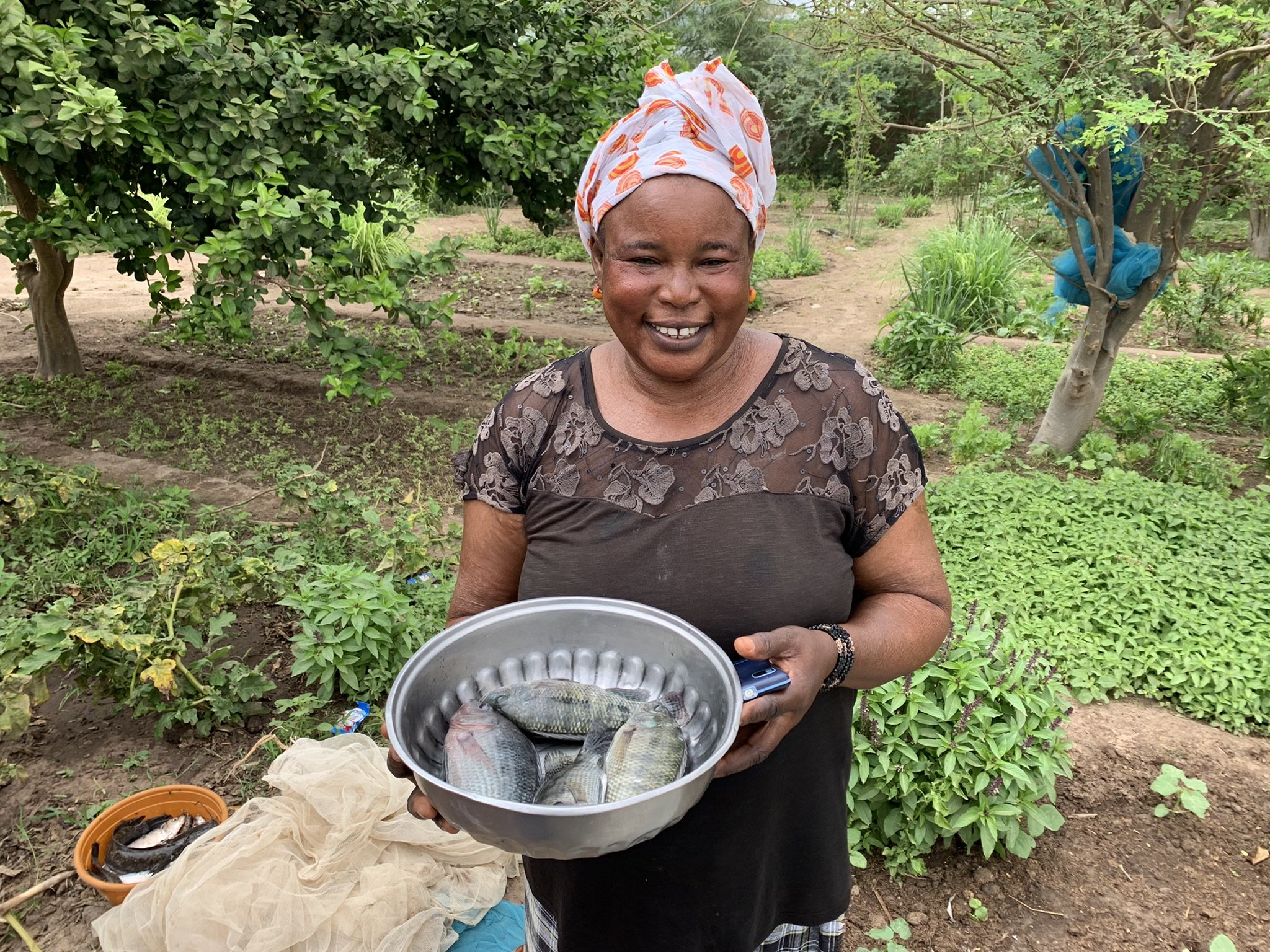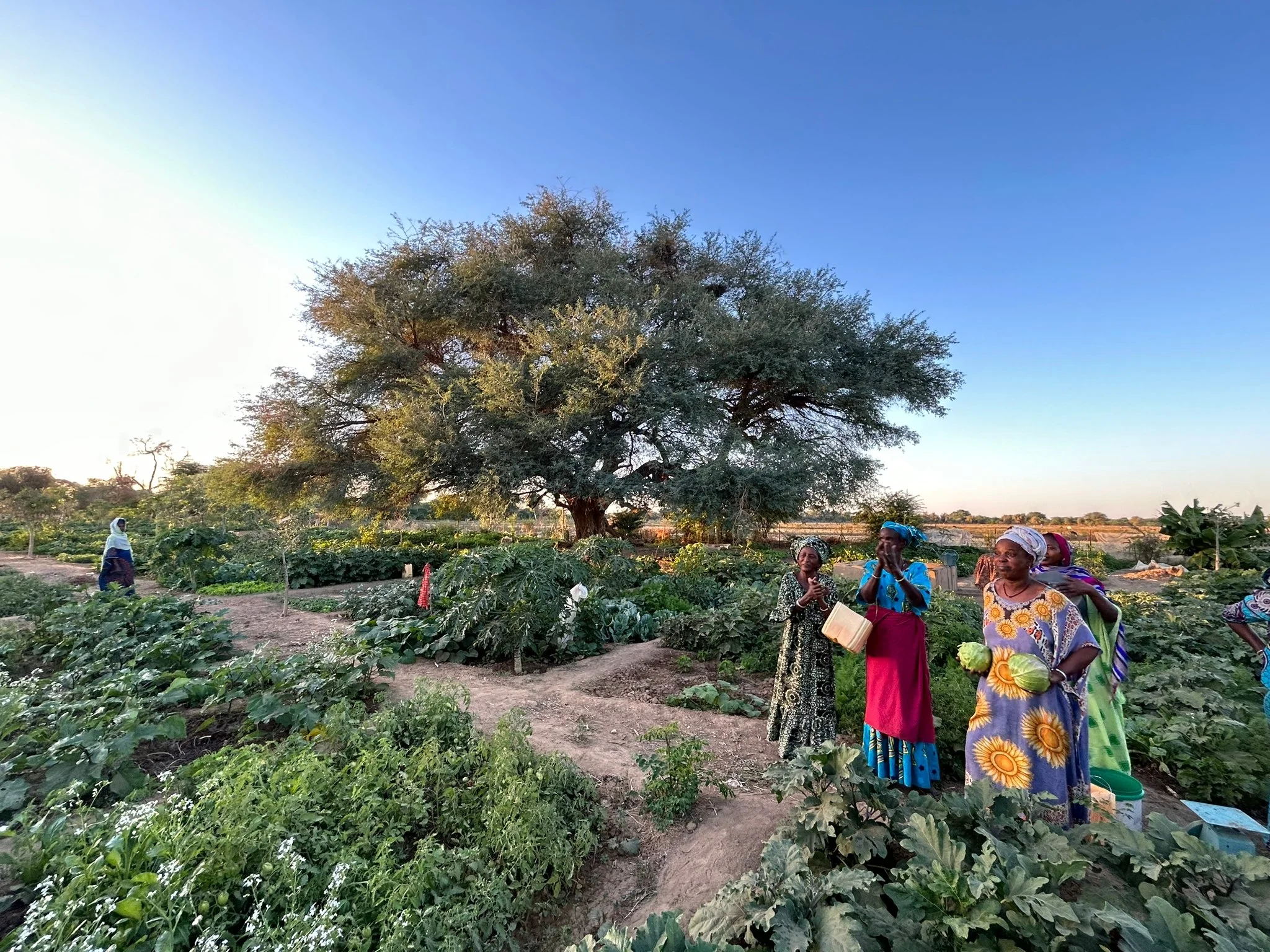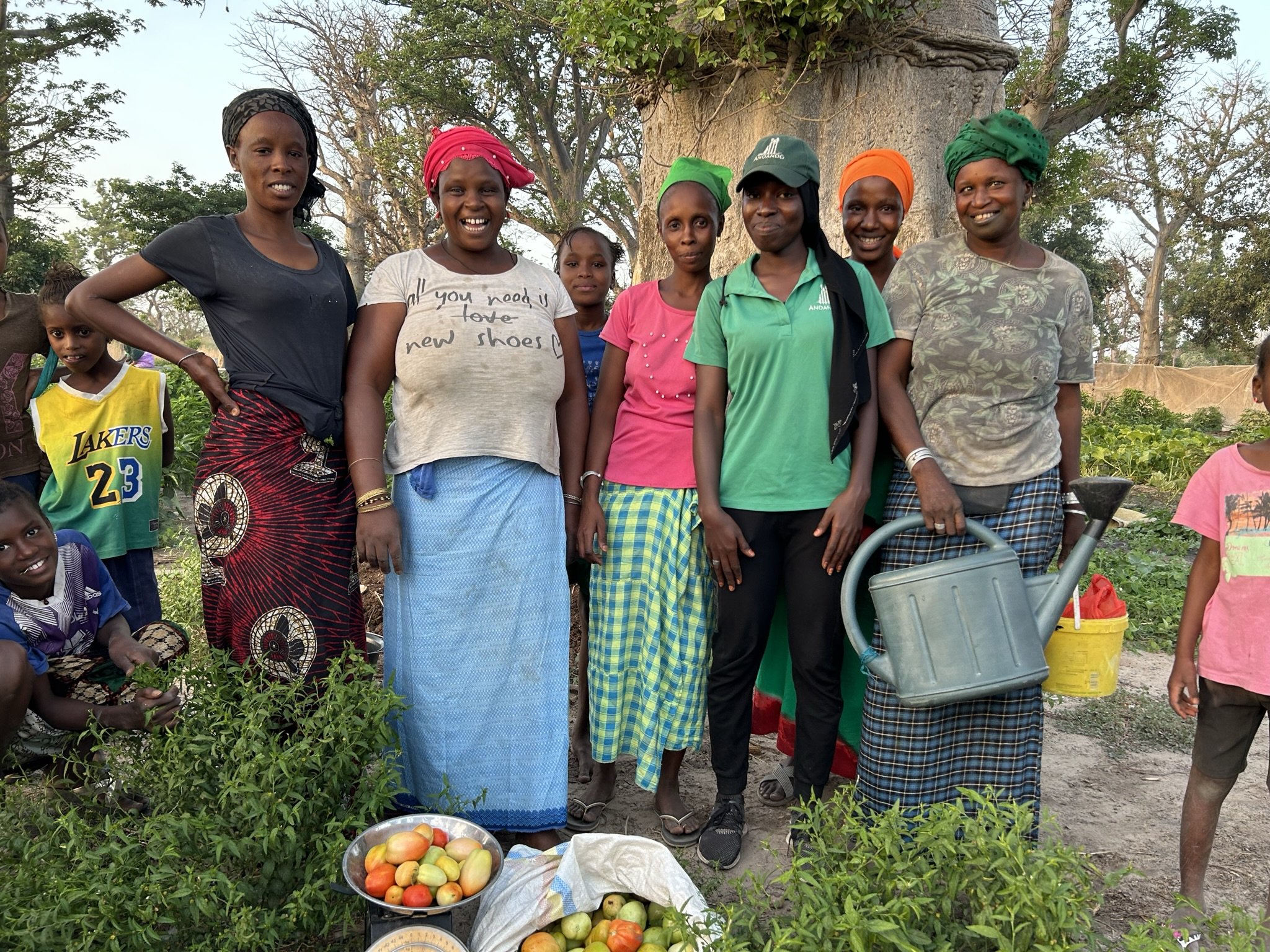Women’s Cooperative Gardens
Andando’s agroforestry initiative supports locally established women's cooperatives to build sustainable food forest gardens that help communities to lift themselves out of poverty! Food security is fundamental to any community’s well being, but in rural villages access to quality fruits and vegetables is often inadequate leading to poor nutrition and a lack of economic opportunities, especially for women. Andando’s women’s gardens transform the harsh landscape of the Sahel into beautiful oases that are permanent sources of income and nutrition for participants and their families.
Members of the Diagakham garden showing off their latest harvest bound for the weekly market.
Our process is rooted in deep connections with village leaders and functions within local government structures ensuring that we are addressing needs in line with regional development plans rather than duplicating efforts or neglecting areas with known needs. By partnering with Senegalese contractors using appropriate technology, we are able to ensure that everything we provide can be maintained or replaced in Senegal. We don’t bring in any materials or labor from abroad and all Andando gardens maintain a substantial savings account to cover the costs of future repairs themselves.
Garden technician Seynabou Ndao with the women of Keur Moussa in their new garden.
Andando’s gardens are uniquely successful in this field due to our commitment to working with our partner communities directly for 5 years. Andando provides each new garden with a local trained agricultural technician to build upon local agricultural knowledge and help the women to become expert market gardeners. This process involves unlearning many damaging colonial agriculture practices that encouraged deforestation and chemically intensive monocrop production. Andando teaches our partner communities regenerative permaculture techniques that continually improve soil fertility and increase resilience in the face of harsh and unpredictable effects of climate change in the Sahel.
The site of the Keur Wack women’s garden before construction.
The Keur Wack garden 5 years later after establishing over 800 beneficial trees!
Andando works in some of the poorest areas of rural Senegal and so we do not require any monetary contribution from our partner communities. Instead relying upon substantial vetting of potential partners, signed agreements with the women’s cooperative and village leaders, and our long-term involvement in the development of the gardens to ensure that each and every project is a success.
The president of the Ndiawara women’s garden signing Andando’s MOU agreement.
Andando gardens average about 2-acres in size and utilize solar well pumps to fill watering basins distributed throughout space. Crops are watered by hand avoiding the costly and unsustainable upkeep of irrigation systems. For the first two years of production Andando pays for 100% of all expenses while the group works to establish the garden and begins contributing 15% of sales to their savings account. Removing financial pressure during this establishment phase gives garden members time to build their savings, learn new techniques, and to establish the forest garden structure which is essential to their long-term sustainability.
Native Tree Planting for Gardens and Communities
This fully established native acacia mellifera live fence creates a permanent impenetrable barrier protecting the Lamarame garden while continually enriching the soil around it.
Each Andando garden establishes a minimum of 500 beneficial native trees which are used for food production, to naturally increase soil fertility, to create microclimates much more hospitable to vegetable production and to bolster infrastructure. The harsh winds and heat of the Sahel can quickly dry out crops, strip away topsoil and destroy costly garden infrastructure, so trees are also used to establish wind breaks and living thorny fences that keep the elements and livestock at bay permanently even when the fence has rusted away.
Members of the Nianga Diery garden prepare their first garden beds. Andando’s methods will substantially increase this degraded soil’s water holding capacity, helping to manage both periods of flooding and drought, while increasing its fertility considerably.
Our partner gardens rely on ground water resources, but because of the forest garden system they also help to substantially increase annual rainy season recharge of aquafers and mitigate ground water loss during the hot dry season. The overall effect is an extremely productive garden that improves local food security without requiring any outside resources or contributing to climate change. In fact over time our gardens actually draw down and sequester substantial amounts of carbon making them a climate change solution!
In addition to helping communities to establish forest gardens, Andando also produces tens of thousands of native tree seedlings each year to support regional tree planting efforts. Seedlings are shared with local schools, health posts, and farmers to improve quality of life, protect infrastructure, aid in reforestation efforts, and improve food security through the integration of beneficial trees into field crop production. Trees are produced in our two central tree nurseries as well directly in partner communities.
The Keur Soce tree nursery produces tens of thousands of native tree seedlings every year helping to support new gardens and local farmers.
Our new tree nursery in Podor, established in 2023, supports local reforestation efforts to fight desertification and the impacts of climate change.
The chief of Keur Ngor has helped his village to start thousands of additional trees to reforest the agricultural land around the village.
Aquaculture: Improving Food Security and Sustainability
Fish is a vital part of the Senegalese diet, both nutritionally and culturally, but access to fresh fish is scarce and prohibitively expensive for our partner communities. To overcome this challenge, starting in 2022 we worked with our partners to develop a pilot aquaculture program in four gardens in the Keur Soce area. Each garden already utilizes a solar well pump to access ground water, so we were able to integrate fish basins “upstream” of crop irrigation to add fish production with zero net increase in water use.
Members of the Keur Wack garden with a recent harvest of Tilapia. Due to high demand within the cooperative most fish are consumed in the village with a small number being sold in the market to fund the next round of fish feed.
The project has proved to be a tremendous success with all of the gardens enjoying consistent profitable fish harvests and substantial improvements to garden production due to irrigation with the nutrient rich fish basin water.
Due to this success, the project was expanded to Andando’s Keur Soce High School garden, making this the only high school in all of Senegal to have a STEM teaching garden with an integrated aquaculture training program!
Students at Keur Soce High School participating in their very first fish harvest in April 2024!
All of our partners recognize the potential benefits of integrating aquaculture into small holder farming and gardening activities and we hope to be able to expand the program soon too all of our partner women’s gardens and more schools as well. This will help to ease the burden on already over exploited natural fisheries while making a significant impact on rural nutrition and food security.
Our Impact
Once established there is no limit to the number of years that our partner gardens can continue to operate. They are truly permanent resources that help communities lift themselves out of poverty, and the results speak for themselves. Garden participants consistently report improved health and well-being as a result of consuming their own local nutrient dense organic produce and they also see a 25% increase in household incomes on average. This extra income makes a huge difference in their lives and is used for everything from school fees to entrepreneurial endeavors and countless other quality of life improvements. Put together Andando’s partner gardens yield over 500,000 lbs. of produce annually resulting in profits of over $100,000 USD which goes directly into the pockets of the women and their families. These incredible numbers continue to increase every year as the program grows and we continue to help our partners to gain new skills and improve their production. Andando gardens are changing lives! Click here to see the latest updates from our agroforestry sector.
